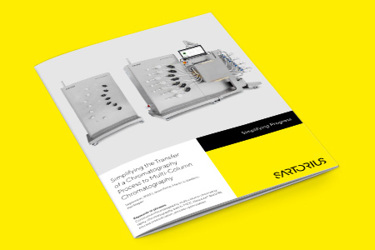Simplifying The Transition To Multi-Column Chromatography
By Jason Forte, Martin Lobedann, and Karl Rogler

For over three decades, there have been only minor advancements in the general operation of chromatographic bioprocessing steps. Despite these improvements, the capture chromatography step remains a significant bottleneck in terms of both cost and time within biopharmaceutical production suites.
Multi-column chromatography (MCC) seeks to alleviate the economic and operational burdens associated with chromatography, particularly during the capture phase, by maximizing process efficiencies to deliver value to manufacturers. Key strategies employed by MCC include continuous column cycling, smaller column sizes, and multiple load zone columns to increase both capacity and process yield.
The perceived challenges of transitioning from batch to multi-column chromatography often outweigh the potential benefits for bioprocess development engineers. Batch chromatography entails managing numerous variables to ensure successful purification, and the added complexity of a process step with multiple columns presents a significant barrier to the adoption of MCC in conventional processing.
This step-by-step beginner’s guide aims to simplify and de-risk the process, offering recommendations for generating supporting experimental data, utilizing Sartorius-provided tools for process modeling, and developing and optimizing a multi-column chromatography process.
Get unlimited access to:
Enter your credentials below to log in. Not yet a member of Bioprocess Online? Subscribe today.
